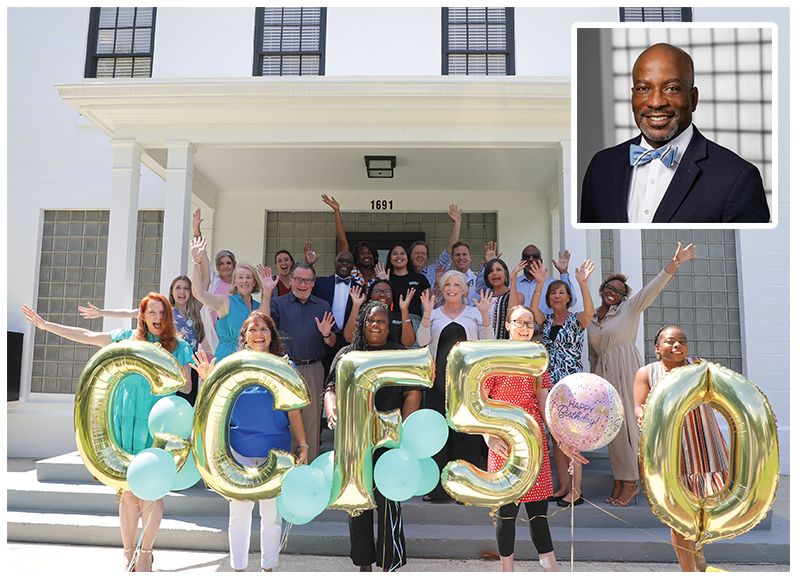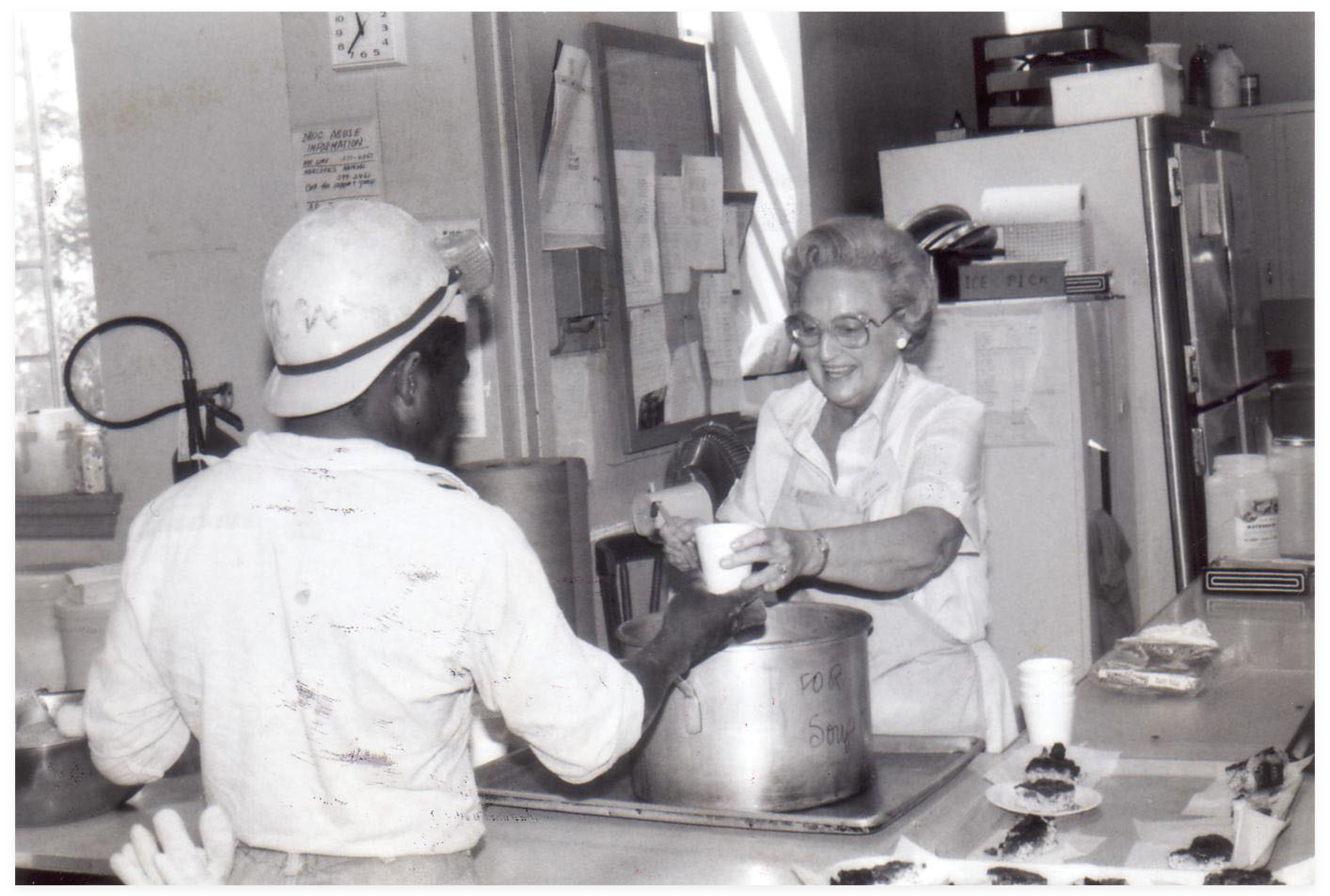The organization has been integral in launching several nonprofits that are essential to the local landscape, including the Lowcountry Food Bank, One80 Place, and the Center for Heirs’ Property Preservation

Coastal Community Foundation president and CEO Darrin Goss Sr. (inset) leads the organization, which celebrates its 50th anniversary this year. CCF helped launch nonprofits such as the Food Trust, which is now the Lowcountry Food Bank.
One would be hard pressed to tell the story of the Lowcountry’s past 50 years without referencing the work of the Coastal Community Foundation (CCF). The place-based grant maker unites people and invests resources that make a difference in areas spanning arts and culture to coastal resiliency. The organization has also been integral in getting several nonprofits off the ground that today feel essential to the local landscape, including the Lowcountry Food Bank, One80 Place, and the Center for Heirs’ Property Preservation.
It all began with $9,000 and a simple vision of providing good. In 1974, the Rotary Club of Charleston put forth the money to establish a long-term fund for community well-being. Later that year, the fund was incorporated as a fully functional nonprofit dubbed the Trident Community Foundation, with founders including then-College of Charleston president Ted Stern; civil rights leader Bill Saunders; and community leaders Howard D. Edwards, Wade Logan, and Malcolm D. Haven. Volunteers spearheaded the group’s strategic planning and outreach.

Fast-forward a half century, and the foundation has grown into the largest grant-making entity in South Carolina—even as it serves donors and nonprofits in just nine of the state’s 46 counties: Beaufort, Berkeley, Charleston, Colleton, Dorchester, Georgetown, Hampton, Horry, and Jasper. Over that time, the foundation has allocated some $425 million in grants and scholarships to 5,800 nonprofits and community organizations and 4,000 local students. To celebrate the foundation’s big 5-0, a bash is planned this month at the Gaillard, marking the milestone with dinner, dancing, and 500 of CCF’s closest friends.
But for all the growth, Coastal Community Foundation’s grassroots soul remains. That’s thanks to a few factors, says president and CEO Darrin Goss Sr., a James Island native who was recruited to his role in 2014. Like other community foundations across the country, its founders, board, and funders are of the community: reflecting the nine coastal counties, spanning diverse backgrounds and ideologies. “And our staff live, work, worship, and raise kids here,” Goss adds. “Our feet are firmly planted in the soil of the Lowcountry.”

(Clockwise from top left) CCF sponsors the Lowcountry Artist of the Year, which was awarded to Gret Macintosh in 2022; The Rev. Pinckney Scholarship Program helps provide access to higher education; The Good Neighborhood Medical Clinic provides health care in Beaufort & Crisis Ministries, which offered shelter and a soup kitchen, has expanded to became One80 Place.
There’s also the way the organization operates: with an ear to the ground, and by design, nimble and dynamic. Right now, that means offering grants, scholarships, and impact investment opportunities across key areas: education, economic mobility, coastal resilience, physical and mental well-being, culture and inclusion, family philanthropy, and future leader cultivation. At the same time, the Coastal Community Foundation is known to spring to action in real-time to meet pressing needs, be it providing emergency aid following major hurricanes or, in the wake of the Mother Emanuel AME Church massacre, creating the Lowcountry Unity Fund, which supports causes aimed at addressing systemic racism.
Despite the foundation’s profound reach, there’s a marked humility in its positioning of itself: less savior, more support staff. “Sometimes we show up and operate in the front,” says Goss. “But often—and probably the majority of the time—we are in the background, quietly working to level the playing field and reach across sectors to bring people around the same table to talk about complex social, economic, and health issues.” Serving as a convener and a connector is a unique role that community foundations often play across the country, he adds. “We don’t feel our team has to solve these issues; that is at the community level. Our job is to bring resources, make connections, and provide data and research. With that, the community can solve it for themselves.” It’s an ethos that brings the act of giving down to earth and serves as a reminder that foundations are not just for the ultra wealthy—anyone with an interest in bettering the community has a seat at this table.